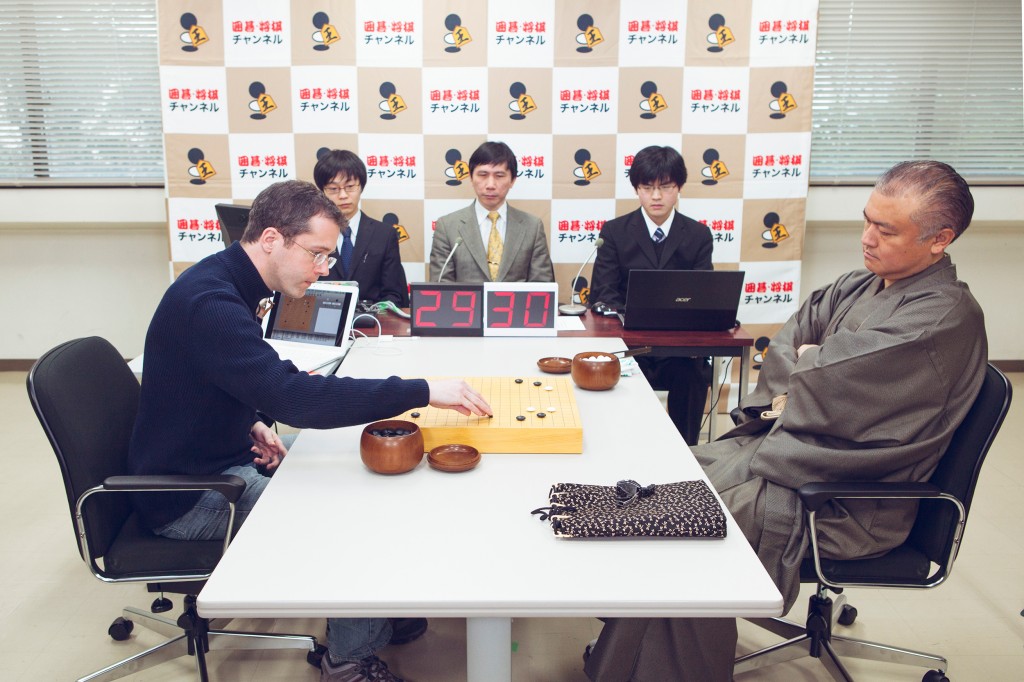
Wired article on the state of things in developing a Go-playing program that will beat the grandmasters, something that apparently might not only be farther off than we thought, but also more difficult.
I was surprised to hear from programmers that the eventual success of these programs will have little to do with increased processing power. It is still the case that a Go program’s performance depends almost entirely on the quality of its code. Processing power helps some, but it can only get you so far. Indeed, the UEC lets competitors use any kind of system, and although some opt for 2048-processor-core super-computers, Crazy Stone and Zen work their magic on commercially available 64-core hardware.
[…]
Many Go players see the game as the final bastion of human dominance over computers. This view, which tacitly accepts the existence of a battle of intellects between humans and machines, is deeply misguided. In fact, computers can’t “win” at anything, not until they can experience real joy in victory and sadness in defeat, a programming challenge that makes Go look like tic-tac-toe.
